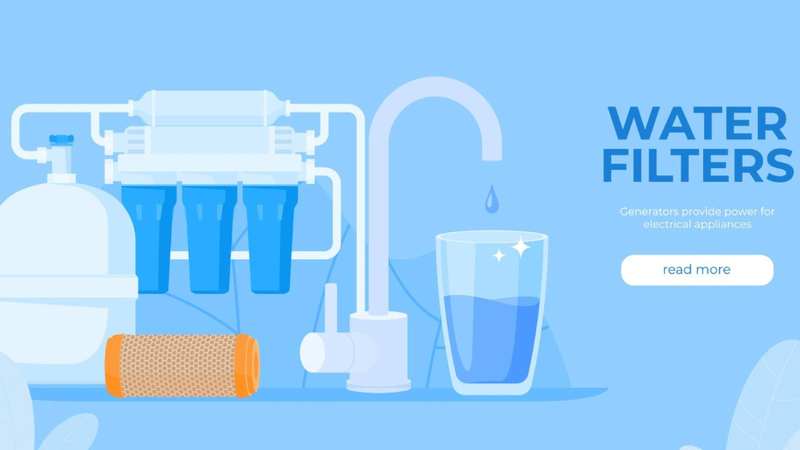As water quality remains a growing concern in many regions, the importance of investing in effective filtration systems becomes ever more apparent. One crucial step in ensuring clean and safe drinking water for your household is to buy a water filter. With so many options, choosing the right one is critical to meeting your requirements and tastes. This tutorial will review the elements to consider when purchasing a water filter for your house, allowing you to make an informed selection.
Quality Assessment
Assessing the quality is vital. Is your water supply sourced from a municipal treatment plant, a private well, or another source? Understanding the contaminants and impurities will help determine the type of filtration system you need. Consider conducting a quality test or contacting your local utility for information on quality in your area.
Identifying Contaminants: Know What You’re Filtering Out
Once you’ve assessed your source, identify the contaminants you want to remove. Common contaminants include chlorine, lead, bacteria, pesticides, and heavy metals. Various water filters are designed to target specific contaminants, so knowing what you’re dealing with will guide you in selecting the appropriate filtration technology for your home.
Filtration Technology: Exploring Your Options
Several types of technologies are available, each with strengths and limitations. Some common types include activated carbon filters, reverse osmosis systems, UV filters, and distillation units. Activated carbon filters effectively remove chlorine and improve taste, while reverse osmosis systems can remove many contaminants, including lead and arsenic. UV filters employ ultraviolet light to purify it and kill bacteria and viruses, making them perfect for houses with microbiological issues.
Flow Rate and Capacity: Matching Your Needs
Consider the flow rate and capacity to guarantee that it meets your household’s demands. The flow rate refers to the speed, while the capacity indicates how much water the filter can process before needing replacement. For larger families or homes with high usage, a filter with a higher flow rate and capacity may be necessary to keep up with demand and minimize the frequency of filter replacements.
Installation
The installation process can vary significantly, ranging from simple, do-it-yourself setups to those requiring professional assistance. For homeowners and businesses alike, the ease of installation is essential. Some systems, such as countertop models, can be set up with no tools or specialized knowledge, offering immediate access to purified water.
On the other hand, more complex systems, like whole-house water filters, often require professional installation to ensure they are correctly integrated into the existing plumbing. Safeguarding against leaks and ensuring the system operates at peak efficiency from day one.
Maintenance
Maintaining it is crucial to ensure it provides clean, safe drinking water. Maintenance routines can include regular filter changes, system checks, and occasional deep cleans or sanitization to prevent bacterial growth. The frequency and complexity of these tasks vary by the type of filter system in use. For instance, pitcher filters may require monthly cartridge replacements, while under-sink or whole-house systems might have longer intervals between changes but necessitate a more involved process. Maintaining these activities is essential for the system’s longevity and quality. For many, opting for a system with straightforward, easy-to-manage maintenance requirements is critical to a hassle-free experience.
Selecting the right water filter for your home is paramount to maintaining clean, safe drinking water for you and your family. Invest in your health and well-being while you buy a water filter. With the right choice, you can enjoy peace of mind knowing that your household is protected from harmful contaminants, ensuring hydration and health for years.




